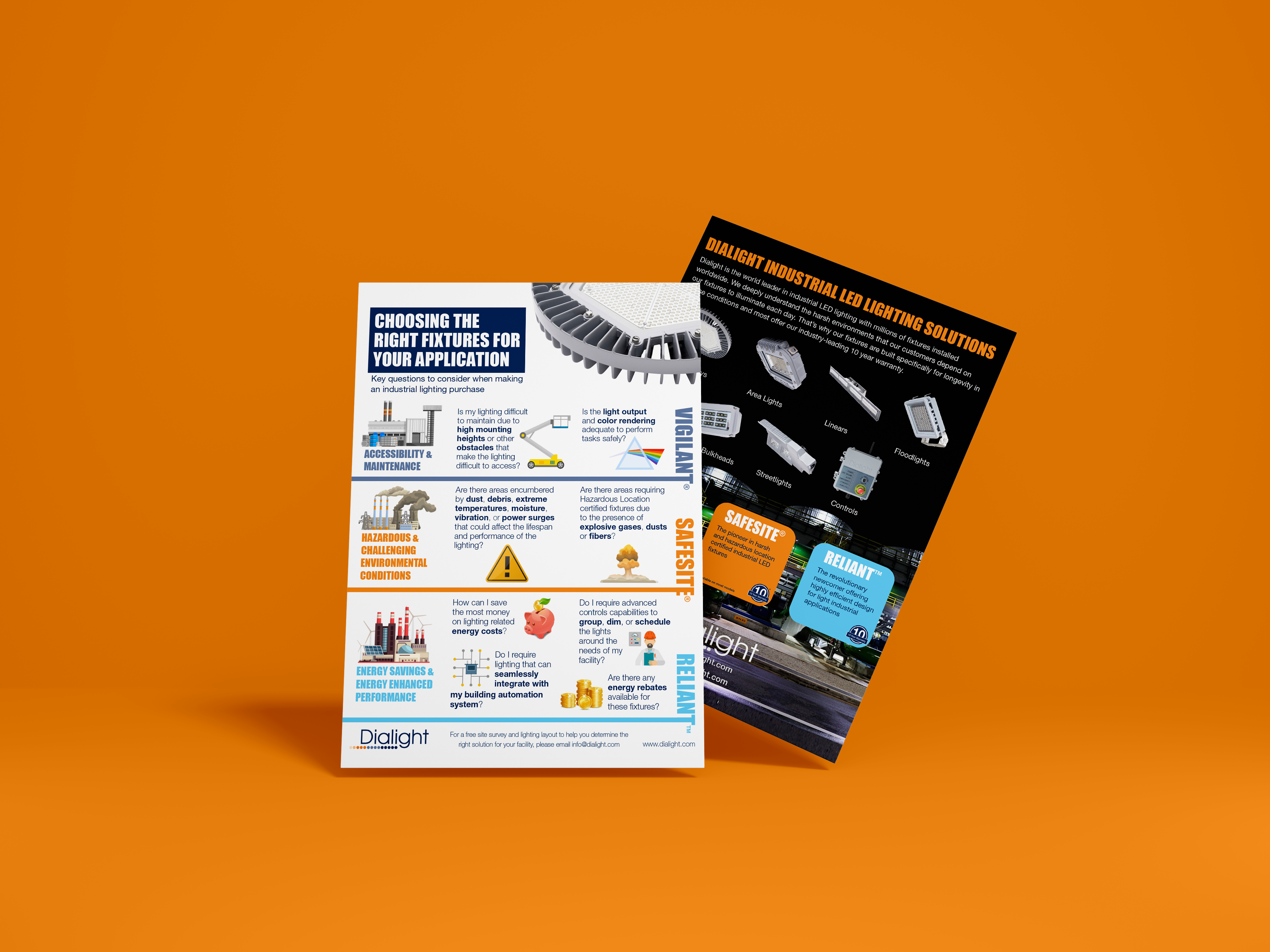Choosing to upgrade your existing traditional lighting infrastructure to LED or selecting the right LED fixture for a new application or facility can seem complicated. However, there are some simple questions that you can ask yourself to make the process of choosing the right fixture for your installation easier.
1) Is my lighting difficult to maintain due to high mounting heights, obstructions, or costly machine or scaffolding rentals?
If so, you could find yourself in a difficult situation every time you need to change out a legacy lighting fixture or bulb. Switching to LED lighting can improve employee safety, reducing the number of times workers need to perform maintenance tasks at dangerous heights and keep facilities from needing costly downtime, stopping large moving machinery in order to access the lighting above.
2) Is the light output and color rendering in my facility adequate to perform tasks safely?
Under traditional light sources, such as High Pressure Sodium lamps, lighting appears orange and can cause the human eye to see colors incorrectly. When performing complex or dangerous tasks, it is important for workers to be able to clearly read warning signs and identify objects in their surroundings. By using LED fixtures with appropriate Color Rendering Index (CRI), objects under the light will show colors more vividly across the full color spectrum.
3) Are there areas in your facility encumbered by dust, debris, extreme temperatures, moisture, vibration, or power surges that could affect the lifespan and performance of your lighting?
It is important to understand the difference in needs between lighting a commercial environment and a more rugged industrial environment. As such, the lighting fixtures you need for your industrial environments should be designed to stand up to these challenging elements. Remember, not every LED light fixture is built the same. When looking for lighting for an industrial application everything from the LEDs used, the housing, power supply, optics, paint, and even the hardware should all be considered.
4) Are there areas requiring Hazardous Location certified fixtures due to the presence of explosive gases, dusts or fibers?
Installing an improper light fixture into a Hazardous location can have dire, potentially catastrophic, consequences. A single spark can result in the ignition of dust, fibers, chemicals, or gases in the atmosphere causing a chain reaction throughout the area. In these Hazardous and Challenging environments, you need to be confident that the lighting fixtures used will meet the required Hazardous location certifications including internal flame paths that will prevent the escape of any spark from the fixture and keep your employees and facilities safe.
5) How can I save the most money on lighting related energy costs? And are there any energy rebates available for these fixtures?
Not only do LED light fixtures drastically reduce the wattage consumed versus legacy lighting technologies, but in many cases LED light fixtures are able to replace multiple legacy fixtures with just one single unit, meaning even greater savings for your facility. Additionally, many energy utility companies offer rebates when purchasing energy efficient products such as DLC listed LED light fixtures.
6) Do I require advanced controls capabilities to group, dim, or schedule the lights around the needs of my facility? And do I require lighting that can seamlessly integrate with my building automation system?
With technological advancements driving facilities towards ever increasing levels of productivity, integration, and automation many customers are seeking lighting which can tie into their infrastructure. Utilizing controls systems with lighting can help maximize site-wide safety and productivity with customized intelligent lighting. By integrating lighting systems with their existing PLC, site managers are able to consolidate control systems and simplify maintenance procedures.

